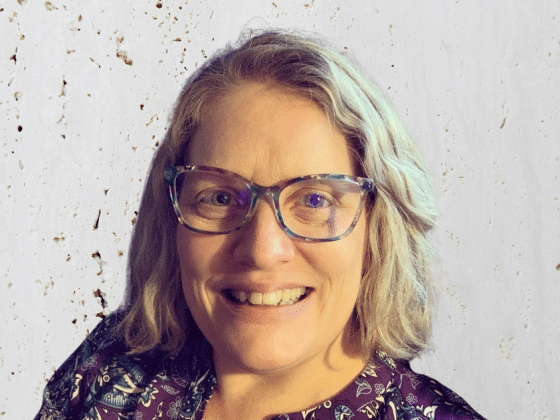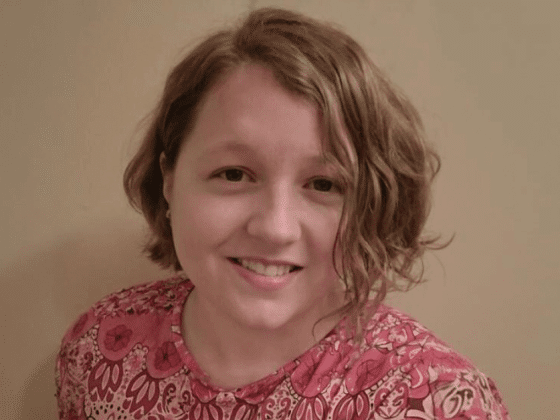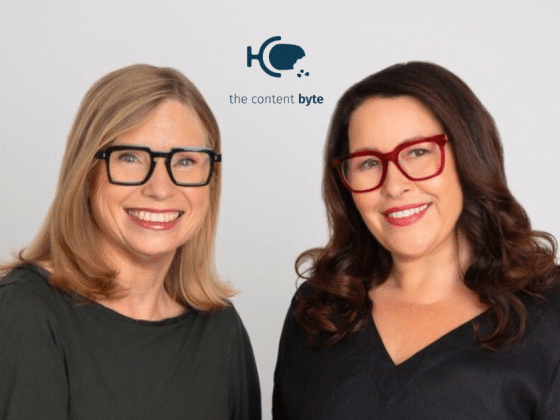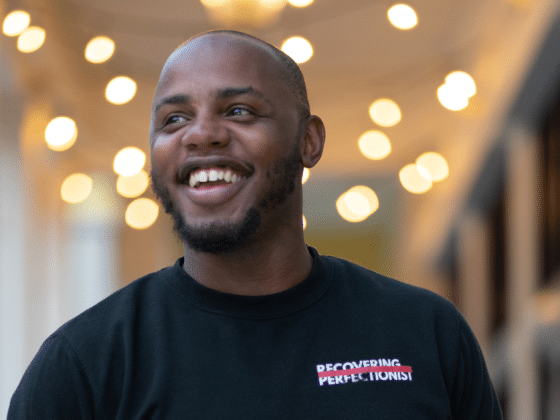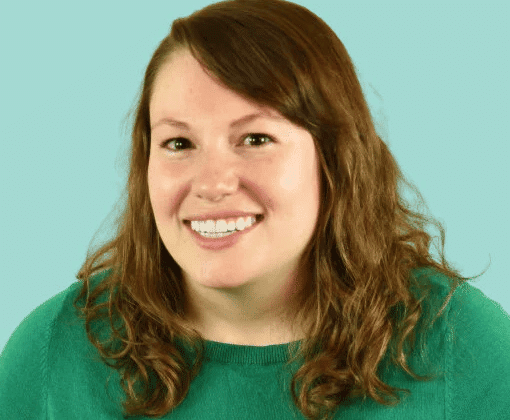
Click the player above to listen to the episode. Or listen on your favorite podcast app! We’re on all major podcast platforms including: Amazon Music, Apple Podcasts, Spotify, YouTube Music, and iHeart Radio, to name a few. You can also watch the interviews on our YouTube channel.
Table of Contents
- How can you turn your creative passion into a thriving freelance business and still give back?
- Time Stamps
- Tools Mara Recommends
- About Mara Shorr
- Noteworthy Quote From This Episode
- Listen Now
- Watch This Interview on YouTube! Subscribe here!
- Find Your Best Business Niche!
- Let’s Get Social
- Read The Transcript
- Lifetimes of Friendship
- The Power of Journalism
- Journalism Skills That Translate to Business
- Why You Need Systems If You Want to Scale
- How To Document Systems In Your Freelance Business
- Tools for Creating Systems
- Embrace Efficiency Tools
- Public Speaking as a Business Development Technique
- Leveraging Your Expertise Through Public Speaking
- Expanding Your Team
- Using Your Business Skills for Advocacy
- Fostering Animals and Children
- Channeling Grief Into Advocacy
- Changing Lives Through Advocacy
- Continuing the Conversation
How can you turn your creative passion into a thriving freelance business and still give back?
In this episode host Ashley Cisneros Mejia sits down with long-time friend and expert consultant Mara Shorr to explore the intersection of journalism, business, and advocacy. Mara shares tactical tips for freelancers ready to expand their business, including how to hire your first virtual assistant or contractor and why documenting systems is key to scaling.
But it’s not all business—Mara opens up about her inspiring advocacy work as a foster mom, guardian ad litem, and foster dog caretaker. Learn how her journalism roots shaped her success and discover actionable strategies to grow your freelance career while staying true to your values.
Whether you’re a solopreneur looking to level up or someone inspired by blending business with purpose, this episode is packed with insights you won’t want to miss.
In this episode, you’ll learn:
- How to create systems to streamline your freelance business.
- The first steps to take when hiring your first team member or virtual assistant.
- Why documenting your processes can make or break your business growth.
- How to use writing and communication skills to create impactful client content.
- Insights into incorporating your professional skills into meaningful advocacy work.
Time Stamps
01:17 Introduction to Mara Shorr
4:09 Mara’s journey from journalism to consulting in the aesthetic industry
08:02 How Mara’s writing background shapes her consulting approach
10:11 The importance of asking the right questions
13:56 Mara’s biggest lessons in business
16:09 The importance of systems and tools for scaling a freelance business
21:04 Mara’s top tools for freelancers, including Loom and ChatGPT
27:07 Tips for getting into public speaking for business development
32:03 Tips for hiring your first team member and writing a job description
35:25 Mara’s advocacy work as a foster mom for dogs and kids and guardian ad litem
39:45 How grief led Mara to turn love into action through fostering and advocacy.
Tools Mara Recommends
ChatGPT – For creating processes, writing protocols, and automating repetitive tasks.
Loom – For recording screen shares and creating training videos to document workflows.
Calendly – A scheduling tool to manage appointments and eliminate back-and-forth communication.
Canva – For designing visually appealing presentations and graphics, especially for non-designers.
About Mara Shorr
Mara Shorr is a seasoned expert consultant, international speaker, and key opinion leader specializing in the business and healthcare sectors, particularly in the aesthetic industry.
With nearly 15 years of experience, Mara has guided practices across North America to achieve operational, administrative, and financial success.
Her award-winning techniques have earned her and her teams accolades such as the “Best Practice Management Company” award from The Aesthetic Guide and the “Top Aesthetic Service Provider/Top CEO” awards from Aesthetic Everything.
A former journalism major with a passion for storytelling, Mara uses her communications background to write for prominent industry publications, serve on editorial boards, and educate audiences at conferences around the globe. She is also a chapter author in the textbook The Business of Plastic Surgery: Volume 2.
Beyond her professional achievements, Mara is a dedicated advocate for both people and animals. As a former foster mom and a guardian ad litem for children in foster care, she has opened her heart and home to foster teens and children in need. She is equally passionate about animal welfare, fostering over 35 dogs through her collaboration with local rescue organizations.
Mara’s work combines her deep understanding of systems, marketing, and human resources with her deep commitment to giving back. Whether she’s helping a business implement better systems, coaching leaders on hiring strategies, or championing foster care reform, Mara’s influence inspires both personal and professional growth.
Follow Mara’s journey of advocacy and expertise on Instagram at @MaraShorr and @MaraAdvocates.
Noteworthy Quote From This Episode
“If you’re thinking about hiring your first team member, write the job description first. That job description is going to help you decide what it is that you’re looking for. It’s going to make you as that business owner crystal clear as far as this is what I want to give up and this is what I don’t want to give up. That job description is going to help you make a lot of business decisions.”
Mara Shorr
Listen Now
Click the player above to listen to the episode. We’re also available on all major podcast platforms including: Amazon Music, Apple Podcasts, Spotify, YouTube Music, iHeart Radio, Podcast Addict, and Deezer. You can also find all episodes on our Buzzsprout page and watch our interviews on our YouTube channel. Get more info about our freelance podcast here.
Watch This Interview on YouTube! Subscribe here!
Find Your Best Business Niche!
We’ve released our “Niches Get Riches” Brainstorming Worksheet – and it’s absolutely free! This worksheet will help you identify the most profitable niches for your freelance writing business. Simply download and go through the prompts to explore potential niches that will quickly set you apart in the marketplace! Grab your copy here: https://pages.talkfreelancetome.com/
Let’s Get Social
Love the podcast so far? Rate and review us if you use Apple Podcasts and join in the freelance conversation on Instagram, Facebook, TikTok, Twitter, and YouTube! You can also connect with Ashley on LinkedIn and check out our boards on Pinterest!
Read The Transcript
Note: This video transcript has been lightly edited using AI for clarity and readability.
[00:00:00] Ashley Cisneros Mejia:Hello, everyone! I’m beyond excited to introduce you to one of my favorite people—my friend, Mara Shorr. Mara and I met around 2011 when we were both entering the first chapters of our entrepreneurial journeys.
Mara is an expert consultant in the business and healthcare space, specifically in aesthetics. Think plastic surgeons, med spas, and other exciting clients. For nearly 15 years, she has helped practices all over North America with operations, administrative programs, employee recruitment, and more to boost profitability and enhance their bottom lines.
Her award-winning techniques have earned her teams numerous prestigious accolades. She’s served as an editorial board member for industry publications and even authored a chapter in a business textbook.
In this episode, Mara shares practical advice for implementing systems and figuring out the first steps to hiring a contractor or virtual assistant in your freelance business. We also dive into her inspiring advocacy work, including fostering animals and serving as a Guardian ad Litem.
Here’s my conversation with Mara.
Lifetimes of Friendship
[00:01:34] Ashley Cisneros Mejia:Hello and welcome to another episode of The Talk Freelance To Me Podcast. I’m your host, Ashley Cisneros Mejia, and today I am so delighted to introduce someone I love and admire—the amazing Mara Shorr. Mara, thank you so much for being here on the show! [00:02:03] Mara Shorr:
Thank you so much! It’s wild to think about how long we’ve known each other. There are so many different lifetimes we’ve shared—different versions of ourselves, both personally and professionally. [00:02:31] Ashley Cisneros Mejia:
I love that idea of lifetimes! Sometimes I feel like I’ve lived four lives with all the adventures and changes. We met around 2010 or 2011, probably through a women’s group. At that point, I think you were working as the head of marketing at a theater in town, right? [00:03:04] Mara Shorr:
Yes, I was! I was the Director of Development for Enzian Theater and the Florida Film Festival. But before that, I worked in fundraising at WMFE, which was both NPR and PBS in Central Florida. It’s since changed to just NPR.
I think it was during my Enzian Theater days that we met because soon after, I went out on my own to start a community relations, PR, and fundraising consulting business. And you had just gone out on your own, too.
[00:04:07] Ashley Cisneros Mejia:Yes, we’ve always been within a step or two of each other, in either direction. [00:04:13] Mara Shorr:
Exactly. And that’s why I’ll never stop telling people how important it is to have strong, confident women in your corner—people you love and support, and who love and support you back.
Over the years, we’ve had so many moments where we’ve leaned on each other, like, “Hey, you’ve done this before. How did you handle this?” Whether it was going out on our own, starting freelance projects, launching a podcast, or navigating business partnerships, we’ve been there for each other. That support has been so key.
The Power of Journalism
[00:05:10] Ashley Cisneros Mejia:I love that so much, and I appreciate you so much. One thing I think our audience will love is the fact that you studied journalism. You’re a writer at heart, but now you’re an expert consultant in business and healthcare, especially in aesthetics. You’re always jet-setting to international conferences, keynoting, and training.
Let’s take a step back. You’ve always been a communicator and a writer. How did you leverage that foundation to build this exciting career as a consultant?
[00:05:45] Mara Shorr:I’ve always had a passion for the written word. As a kid, I self-published little pop-up books, cutting strips of paper and assembling them myself. In high school, I loved working on the school newspaper and hanging out with the journalism kids.
I majored in journalism and communications at Central Michigan University, with an advertising minor and a PR concentration. Their program was incredible, and I’ll always recommend it. The classes I took on AP style shaped me—I still maintain there’s no need for a comma after the last item in a list!
[00:07:00] Mara Shorr:Even though I’m not a newspaper writer or blogger by trade anymore, my journalism background taught me communication, clarity, and precision. Whether it’s writing, public speaking, or consulting, those skills have been invaluable.
After working in fundraising, at the Florida Film Festival, and running my own business, I became a partner in a consulting firm with a family member for a decade. Now, I consult with cosmetic and aesthetic practices, like plastic surgeons and med spas.
I still write for industry publications. It’s not my full-time job anymore, but writing is a passion I’ll never let go of.
Journalism Skills That Translate to Business
[00:08:22] Ashley Cisneros Mejia:I love that so much! There’s been a lot of discussion lately about the ROI of certain degrees, like journalism versus something like engineering. But I think you’re showing how transferable the skills from journalism are—asking questions, researching, being detail-oriented. [00:09:07] Mara Shorr:
Absolutely. One of the things journalism teaches you is how to ask good questions. I’ve always been curious and hungry for knowledge, and I joke that my gravestone will one day say, “But wait, I have one more question.”
In journalism, if you’re not satisfied with an answer, you rephrase and ask again. That skill has served me so well in consulting, especially when hiring or conducting interviews for clients.
[00:10:23] Ashley Cisneros Mejia:You’re also one of the most well-networked women I know. I think that curiosity and genuine interest in people play a huge role in your success. Your clients trust you because they know you’re really listening and making connections. [00:11:05] Mara Shorr:
Thank you! I think it all goes back to journalism—being able to listen deeply and ask the right follow-up questions. It’s about getting to the heart of what someone is really saying.
Systems and Scaling: The Backbone of Business
Why You Need Systems If You Want to Scale
[00:14:17] Ashley Cisneros Mejia:Now we’re really dating ourselves. I know! Back then, Facebook existed, but it was mainly for personal connections, not business. Influencers weren’t a thing, and there wasn’t the same level of knowledge sharing online as there is today. [00:14:37] Mara Shorr:
Exactly. I don’t even think Etsy existed back then for downloading spreadsheets and tools. I remember when I had to send out my very first invoice. I thought, Huh, how am I going to do this? I phoned a friend—Ashley, it was you! You sent me an Excel spreadsheet template for my first invoice.
Back then, we didn’t have the digital tools and systems we do now for communicating and running businesses. Setting up systems was one of the hardest parts for me when I started, and it’s still a challenge I see with my clients who are opening their own businesses or practices.
When you’re a solopreneur, you’re everything—the CEO, the janitor, the accountant. And I can relate to that. When my clients start out, they’re in the same boat, trying to manage it all themselves. But when it’s just you, the consulting services and the actual work aren’t enough. You also have to focus on running the business side, which can feel overwhelming.
[00:16:08] Mara Shorr:I’ve always been good at balancing my schedule and staying focused, so that wasn’t an issue for me. But the challenge was figuring out how to create sustainable systems for my business.
How To Document Systems In Your Freelance Business
[00:16:26] Ashley Cisneros Mejia:I love how you mentioned systems! When you’re a solopreneur, you’re doing everything—taking out the trash, invoicing, paying taxes, working with your CPA, and, of course, delivering the actual work.
When you start growing, it’s usually because client work is increasing, and you need help to get it all done. But it’s hard to take a step back and document how you do what you do.
When I had my marketing agency, we grew really fast, which was exciting but chaotic. We didn’t document anything. When it came time to train people, it was like, “Can you learn by osmosis?” Of course, that doesn’t work.
Having SOPs (Standard Operating Procedures) is so important. If you don’t have systems in place, you’re going to struggle. Mara just dropped a huge gem here—document your systems.
[00:17:57] Mara Shorr:Yes, and do it as soon as you can. Sometimes we don’t plan on hiring someone until we realize we need help, and by then it’s urgent. When you hire that first person, document everything during the training process.
Don’t wait until you have five or ten employees. Start documenting early so your systems are scalable. If all your processes are just in your head or scattered across emails, it’s not sustainable once you bring in another person.
Even if you’re freelancing for another company, and they’re saying, “Oh, I just keep everything in my email or on my phone,” that’s a red flag. That doesn’t work in the long term.
Tools for Creating Systems
[00:19:14] Ashley Cisneros Mejia:I love this, Mara. There are so many tools now—especially with AI like ChatGPT—that can help document systems. For someone just starting out or thinking about hiring their first virtual assistant, what tools do you recommend? [00:19:56] Mara Shorr:
I’d recommend two tools, and you can even use them together: ChatGPT and Loom.
First, ChatGPT—bookmark it on your computer and get the app on your phone. Then, use Loom to record yourself doing tasks. Loom is perfect for creating screen recordings, like showing how to pull a report or navigate a system.
When you record a Loom video, narrate what you’re doing. For example, say, “First, log in here, then click this dropdown,” and so on. Keep the videos short—three to five minutes max—so they’re easy to digest.
Once you’ve recorded the video, use Loom’s transcription feature, then copy the transcript into ChatGPT and ask it to create a step-by-step protocol. It gets you 75% of the way there, and you can go back to customize and fine-tune it.
[00:21:42] Mara Shorr:For a recent client, I used this process. I had a colleague record videos on Loom, transcribed them, and fed the transcript into ChatGPT to create a protocol. All I had to do was add a few screenshots and save it as a Word document. Now, the client has clear, step-by-step instructions for pulling reports.
This process saves so much time. Instead of manually typing everything out, you get a draft done quickly, then refine it as needed.
Embrace Efficiency Tools
[00:23:48] Ashley Cisneros Mejia:This is amazing! I hope everyone listening realizes the gold you just shared. Tools like these are a game-changer, especially for saving time and energy. [00:23:56] Mara Shorr:
Exactly. There are so many things you need to do manually, but this isn’t one of them. Let the tools handle the heavy lifting so you can focus on what matters. [00:24:00] Mara Shorr:
Another tool I love is Calendly for scheduling. We shouldn’t still be emailing back and forth, like, “Can you do Wednesday? Oh, no, what about Thursday at 10?” Calendly syncs with multiple calendars—Gmail, work, whatever—and lets people book directly with you. It saves so much time.
Public Speaking as a Business Development Technique
[00:25:47] Ashley Cisneros Mejia:One thing I love about following you on Instagram is seeing all the incredible conferences you speak at. You’re keynoting and leading amazing sessions all the time. How do you use your writing and communication background to create speeches that resonate? [00:26:02] Mara Shorr:
First, know your topic inside and out. Writing a speech for yourself is very different from writing for someone else. When I give a talk, it’s on something I know deeply.
As women, we need to stop doubting ourselves and own our expertise. If you’re an expert in your field, say it with confidence.
[00:27:18] Mara Shorr:Second, know your presentation style. Some people are serious and formal speakers. That’s not me—I like to be lighthearted and add humor where appropriate. I also share real-life examples to make the content relatable.
Always have a clear call to action at the end of your talk and let people know how to connect with you. It’s not just about sharing knowledge—it’s also about building relationships.
Leveraging Your Expertise Through Public Speaking
[00:29:20] Ashley Cisneros Mejia:This is so, so helpful. I think a lot of people don’t think about themselves as speakers, especially if they’re writers or editors in a specific industry. But so many writers I’ve talked to are experts in their niche—they know everything there is to know about their topic. What a cool way to think about developing their business and marketing their services. [00:29:52] Mara Shorr:
Exactly! I’ve had requests to speak at highly niche conferences, and I’ve become very intentional about where I choose to speak. For me, attending a conference has to align with one of two goals: business development or vendor relations.
If the audience isn’t aligned with my target market, I don’t need to be there. I don’t need to travel all over the continent for events that don’t serve my business goals. Being selective has been key.
Expanding Your Team
[00:30:25] Ashley Cisneros Mejia:That makes a lot of sense. I also know you do a lot of hiring and recruitment for your clients. For a freelancer who’s ready to expand their team for the first time, what should they consider? It can be nerve-wracking since they’ve done everything themselves until now. [00:30:57] Mara Shorr:
The first step is to write a job description. You’ll need it to post on job boards, but more importantly, it helps you get crystal clear on what you’re looking for. Writing it forces you to think about what you want to give up, what you want to keep, and what’s non-negotiable versus negotiable.
It also helps you make decisions like:
- Do I want someone full-time or part-time?
- Can I afford to offer benefits, or should I provide a stipend?
- Should I hire another freelancer or a company for specific services like bookkeeping or billing?
Sometimes, when you write it all out, you realize you don’t need an employee—you need a service.
[00:32:16] Ashley Cisneros Mejia:Oh my goodness, this is gold! I feel like I’ve seen people do this process backward. [00:32:22] Mara Shorr:
Exactly. And once you hire that first employee, you need an employee handbook. As a solo freelancer, you don’t need one—just be a good human and govern yourself accordingly. But when you hire someone, the handbook becomes essential for setting expectations, outlining company policies, and clarifying boundaries.
Of course, we’re assuming you already have contracts with all your clients. If you don’t—get on that! Most freelancers learn the hard way. If you haven’t been burned yet, good for you, but it’s only a matter of time. Contracts are non-negotiable.
[00:33:15] Ashley Cisneros Mejia:So true. Another fantastic reminder! Mara, you’re incredible.
Using Your Business Skills for Advocacy
[00:33:52] Ashley Cisneros Mejia:
We’ve talked a lot about business, but I’m also inspired by your personal life. You live your passions—you make love a verb. Your compassion for both animals and people is extraordinary. You’ve fostered dogs for years, and now you’re also a foster mom and a Guardian ad Litem advocate for children. Let’s talk about the pups first.
How did you become a dog mom and start fostering so many adorable animals along the way?
[00:34:18] Mara Shorr:I’ve always grown up with animals—it was non-negotiable for me. After college, I knew I’d have pets because that’s how I was raised. Looking back on my childhood, I thought it was completely normal to have a zoo at home—dogs, guinea pigs, rabbits, birds, turtles, fish, and even the occasional wild rabbit we nursed back to health.
Thank you, Mom, for making me think that was normal! Apparently, not everyone grew up with 10-12 animals at a time.
[00:35:03] Ashley Cisneros Mejia:You had your own zoo! [00:35:04] Mara Shorr:
Totally. My mom was my inspiration, and I joke that I’m a version of her at my age. Growing up, we fostered dogs through German Shepherd Rescue in Pennsylvania. Fast forward to 2020—it was COVID, and we were stuck at home like everyone else. My husband and I had just adopted our puppy, Vincenzo Moishe Shorr-Simolo, aka Vinnie.
We weren’t ready to adopt another dog yet, so I asked, “What do you think about fostering?” We were home all day, every day. Why not? Fostering became my COVID hobby—better to be locked down with puppies than without!
We’ve fostered 35 dogs since then, always one at a time. Sometimes we’d take care of a pup for a weekend while another foster was out of town. My friend’s son even called it the “Vinnie Hotel.”
Our current foster, Scooby, has been with us for 13 months. He’s a special needs dog with some past injuries, so he wears belly bands (we call them his pants). He has an amazing collection, including some that look like jeans, which I call his “jorts.”
[00:38:03] Ashley Cisneros Mejia:This audience loves a good work-from-home companion—maybe we can help find Scooby a forever home! [00:38:15] Mara Shorr:
I’ll pitch Scooby anywhere, anytime! He’s with Little Rascal’s Rescue, and he’s the sweetest.
Fostering Animals and Children
[00:38:38] Mara Shorr:
On a more personal note, fostering animals led me to foster advocacy for children. In 2019, I lost my younger brother to addiction. Then in 2020, my grandmother, who was my rock, passed away. I was her healthcare surrogate and power of attorney. Grieving both of them during a global shutdown was overwhelming, but it also made me reflect on what I could do to help others.
A close friend suggested I look into the Guardian ad Litem program. In Orange County, Florida, you need to be a lawyer to join, but they have a Volunteer Advocates for Children program, similar to CASA (Court Appointed Special Advocates).
I initially thought, What do I know about foster care? I don’t even have kids. But my friend said, “You’re more prepared than you think. Your experiences with your brother and grandmother have given you unique empathy and resilience.”
I signed up, completed the certification, and on the day of my background check, I was assigned a child entering care. It felt meant to be.
That little girl was 8 years old at the time and is now 11. Her caregiver has since adopted her, and we’re like one big blended family. I talk to her almost daily and am going to see her perform in a Shakespeare camp play tomorrow.
Later, I became an advocate for her 16-year-old cousin, who was living in a group home. When things didn’t work out with her placements, she came to live with us. So, at 17, with multiple tattoos and her own unique personality, she joined our family.
Channeling Grief Into Advocacy
[00:42:08] Mara Shorr:Hayden has since launched—she has her own apartment now and is taking college classes. She even has two cats and a kitten. One of the cats was a stray that gave birth in her bathroom sink, which is how she ended up with three! That little kitten was a surprise for all of us.
This journey—advocating for kids in foster care and navigating the Department of Children and Families—has become a huge passion of mine. It’s a messy, complex system, and I’m always looking for ways to turn my ideas into action. I even created a separate Instagram account to focus solely on advocacy work and explore how I can support families facing similar challenges.
That said, I’ve promised my husband that none of my other passions will come live with us. We still have Scooby here, and Hayden remains a huge part of our lives. She’s 19 now, and we see each other regularly—sometimes weekly or every other week. We’re still in the same orbit, and she’ll always be my teenager.
Whether it’s through presenting, public speaking, writing social media posts, or asking tough questions, I’m using all my skills to make a difference in this space. And let me tell you, the foster care system needs a lot of questions asked—caseworkers may find it frustrating, but that’s how we move things forward.
If anyone listening has ever thought about becoming an advocate, I encourage you to take that step. It’s a heartbreaking yet beautiful way to make a real impact.
Changing Lives Through Advocacy
[00:44:24] Ashley Cisneros Mejia:
Wow, Mara. I’m honestly at a loss for words. What you’re doing is the ultimate level of involvement and impact. There are so many ways we can support causes that touch our hearts—volunteering, donating money, helping with events—but literally opening your home and family is extraordinary. [00:45:09] Mara Shorr:
Luckily, no one in our crew currently needs a kidney, so I’m safe there! But yes, the teenager has borrowed my car—that’s as far as it’s gone. [00:45:23] Ashley Cisneros Mejia:
I’ve heard foster parenting is incredibly hard. How has it changed you? What have you learned from this experience? [00:45:32] Mara Shorr:
It’s impossible not to be changed by it. Seeing how lives could have taken such different turns is humbling. I don’t say this to diminish my role, but I genuinely believe I’m not special—I don’t possess unique skills that others don’t. I ask questions, have compassion, and want to make the world a better place.
Anyone can help in some way. It doesn’t always mean becoming a foster parent. For instance, I couldn’t have made a carload of suitcase donations to the only county-run group home without others pitching in. Even those small acts—donating a suitcase, giving a one-time contribution—are part of a bigger picture.
Being a foster parent was not easy for any of us—my husband, Hayden, or me. There’s a saying: When you’ve been in the freezing cold for so long, even lukewarm feels burning hot. That was true for Hayden. It had been years since she’d felt unconditional love in a home, so even kindness could feel overwhelming.
We had to navigate what I call “trauma landmines.” Sometimes we’d react to each other and have to pause, asking, “Why did we respond like that?” It’s like raising a biological child—the relationship evolves as their needs change.
Now, we’re in a different phase. I go with her to doctor’s appointments, help her furnish her first apartment, and trade Taylor Swift memes. Her aesthetic? “Free 99.” We’re figuring it out, and I’m so proud of her.
Everyone can help in some way. It doesn’t have to be all or nothing.
Continuing the Conversation
[00:49:39] Ashley Cisneros Mejia:
Mara, it’s incredible how you’ve turned your grief into love and action. They say grief is love with nowhere to go, but you’ve channeled yours into creating new life for others—whether it’s fostering 35 dogs, advocating for children, or supporting Hayden as she starts her journey.
The ripple effects of what you’ve done will continue for generations. It’s a challenge and inspiration for all of us to stop saying, “I can’t,” and start asking, “What can I do?”
[00:50:54] Mara Shorr:Exactly. If anyone listening has questions about anything we’ve discussed, I’d love to connect. My main Instagram is @MaraShorr, where I share daily life—business, dogs, advocacy, all of it. For a deeper focus on foster care advocacy, I created @MaraAdvocates.
Whether you need advice, resources, or encouragement, I’m here for it. Collaboration is everything.
[00:51:43] Ashley Cisneros Mejia:
Thank you, Mara, for your friendship, wisdom, and everything you do to inspire and create change. You truly rock, and I’m so grateful for the time you’ve shared with us today. [00:52:03] Mara Shorr:
Thank you, Ashley. Sending so much love your way!










